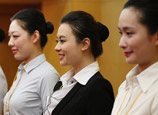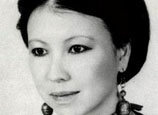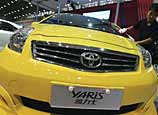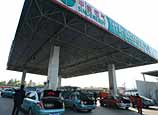
"Central SOEs are supposed to be attaching great importance to key businesses, accelerating business integration, and divesting any inefficient assets during 2013," Wang said, adding that the commission will be putting stricter controls on the scale and direction of investments in 2013, at home and abroad.
Xu added: "A company's competitiveness usually comes from its core business, and so SOEs should be cautious about making any investment in an unfamiliar business."
In early 2012, the commission asked each SOE to submit an analysis on how to narrow the gap between Chinese central SOEs and top-grade companies worldwide.
During the 12th Five-Year Plan period (2011-15), the major goal of the commission is to develop central SOEs into top-ranking industrial players globally.
There were 42 central SOEs, including China National Petroleum Corporation, the State Grid Corp of China and China Communication Construction Co, named in the Fortune 500 list last year, up from 38 of the previous year.
Xu added that concentrating on its key business is a crucial part of any international company, and that Chinese companies should learn from that principle.
Since 2010, the commission has required all but 16 SOEs - the number of specialist real estate organizations - to quit that sector, for instance.
Last year, 15 SOEs withdrew from 17 real estate projects, according to data from the China Beijing Equity Exchange.
A number of central SOEs have already announced significant moves to diversify their businesses, in ways related to their core activities.
China South Locomotive and Rolling Stock Co Ltd, for instance, China's biggest rail transit equipment manufacturer, said it plans to get into the wind turbine industry by launching a self-developed 2-gigawatt wind power machine on the market.


















 Flight attendants recruitment attracts beautiful young applicants
Flight attendants recruitment attracts beautiful young applicants


![]()
